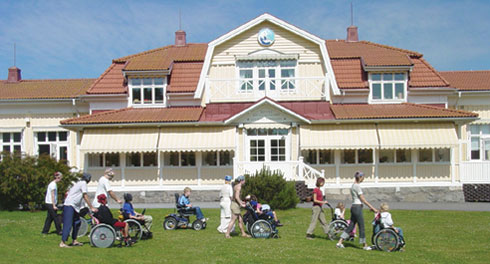EURORDIS promotes Specialised Social Services for Rare Diseases with new website section and paper
December 2012 An exciting new section on the EURORDIS website is devoted to Specialised Social Services for Rare Diseases, while a new EURORDIS paper emphasises the need for these services and the importance of their integration into social policy.
An exciting new section on the EURORDIS website is devoted to Specialised Social Services for Rare Diseases, while a new EURORDIS paper emphasises the need for these services and the importance of their integration into social policy.
Specialised Social Services for Rare Diseases include different resources designed to help improve the autonomy, well-being and health of rare disease patients and those who care for them. Examples include respite care, therapeutic recreation programmes, adapted housing, resource centres, and habilitation services. The new website section features detailed information on the different kinds of Specialised Social Services for Rare Diseases, the locations of existing services identified to date across Europe, and the experience of patients and families who rely on such services to improve their quality of life. An interactive map allows the location of individual centres to be visualised.

EURORDIS has also produced a new paper describing the issues around Specialised Social
Services for Rare Diseases. The paper, entitled Rare Diseases: Addressing the Need for Specialised Services and Integration into Social Policies, showcases the experience of patients and their families on the need for Specialised Social Services and presents the policy framework that identifies these services as essential elements to include in the National Plan for Rare Diseases each European Union Member State is encouraged to develop by the end of 2013. The paper also includes an overview of relevant literature on the topic.
In coming months, EURORDIS, as leader of an important EUCERD Joint Action work package devoted specifically to Specialised Social Services and Integration of Rare Diseases into Social Policies, will continue mapping Specialised Social Services, assess the training needs of social services providers and will also work toward the integration of rare diseases into social policies at the European and Member State levels. This work will feed the future EUCERD report on guiding principles for social care in rare diseases and the subsequent EUCERD Recommendation.
More information
|
